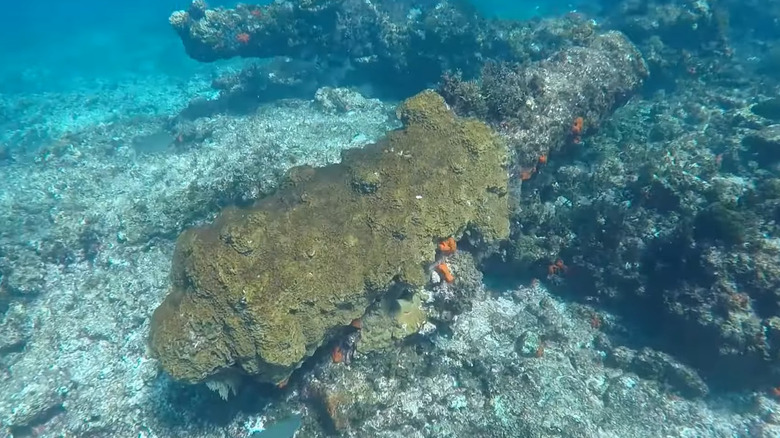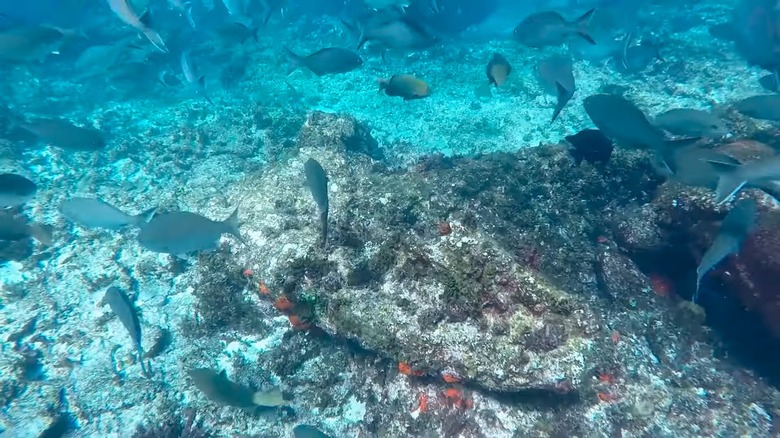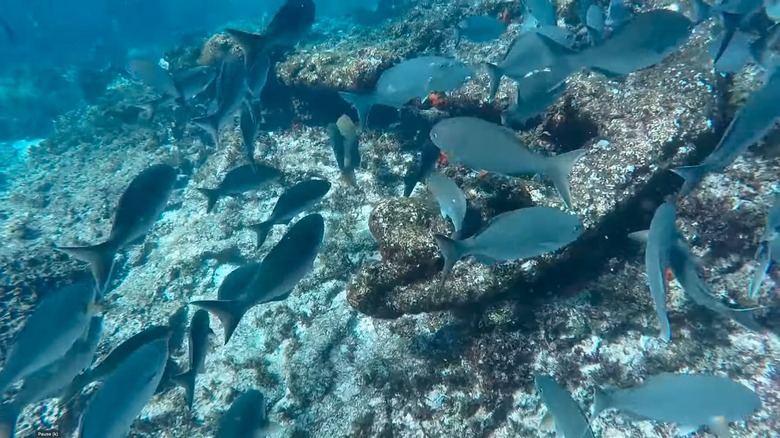Diving Western Australia’s Shipwrecks/YouTube
There is something fascinating about a shipwreck. The lives lost pull at our heartstrings, and the tragic circumstances often scare the pants off of us. It’s a piece of history, frozen in time and preserved by water right at the moment of the wreck. Some shipwrecks last largely intact, while others fall apart from the currents, sea life, and time.
Shipwrecks are a favorite place for scuba divers who love history and discovery. While there are all sorts of laws and rules about what you find and who it belongs to, often the real treasure is just getting to see a piece of the past that few are able to reach.
One shipwreck off the Houtman Abrolhos Islands of Australia happened centuries ago, and wow, is it a story! There is the wreck itself, and then the murderous aftermath, to make this story very compelling — though if you want to visit, you should be an expert diver. The conditions of the sea in the area make it a more dangerous dive. But first, let’s take a dive into the history of the 1629 wreck of the Dutch East India Company ship, the Batavia, and learn why you need to know what you’re doing before you visit.
About the Batavia shipwreck

Diving Western Australia’s Shipwrecks/YouTube
The Batavia set sail from Holland with a cargo of jewels and silver in 1628. There were 322 people on board (or 340; the number varies because of some desertions), including officers, crew, and some women and children. On June 4, 1629, the ship hit a coral reef in the Houtman Abrolhos Islands and sank, drowning around 40 people. Many more made it to the shore of Beacon Island. Some of the officers went off in a small boat to find help, which they did in around two months’ time.
However, some of the crew had been planning a mutiny before the wreck happened, and they believed the officers had gotten wind of it. The mutineers sent some survivors off to nearby islands to look for water (expecting they would not return), and began to murder many of the others – 125 in all. The idea was to use a small crew of loyal men to take the rescue ship for themselves. However, the officers who left came back and captured 16 conspirators, who were tried, tortured, and executed for their crimes.
What you need to know to dive the Batavia shipwreck

Diving Western Australia’s Shipwrecks/YouTube
The Batavia was rediscovered in the Indian Ocean off Morning Reef, about 40 miles off the west coast of Australia, in 1963. The ship has been excavated and some of its parts and cargo removed, though some things, like an anchor and some cannons, are still there for divers to explore. The conditions of the water didn’t make it easy to get the ship parts out. At that time, the remains of some of those murdered were removed from Beacon Island as well.
The major issue with diving the wreck of the Batavia is the condition of the sea in the area. The waves can be pretty big here, and swells can be strong. The spot with the remains of the ship is on the seaward side, so it’s not protected by coves or anything like that. If you do choose to visit this site, it’s a good idea to have certification for shipwrecks. The ship’s remains currently sit between 15 and 20 feet below the surface. Taking a dive tour there isn’t a bad idea if you’re qualified.

